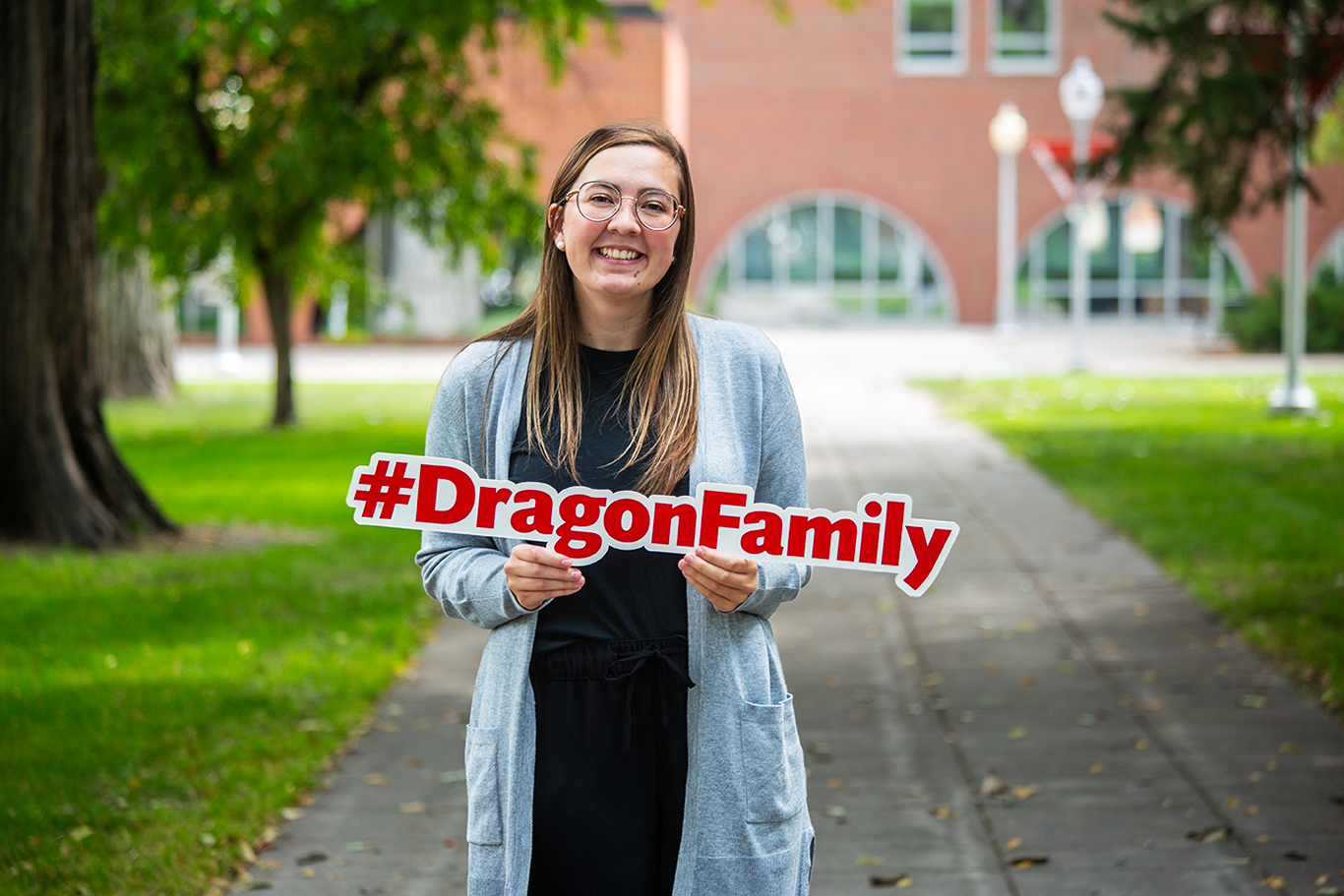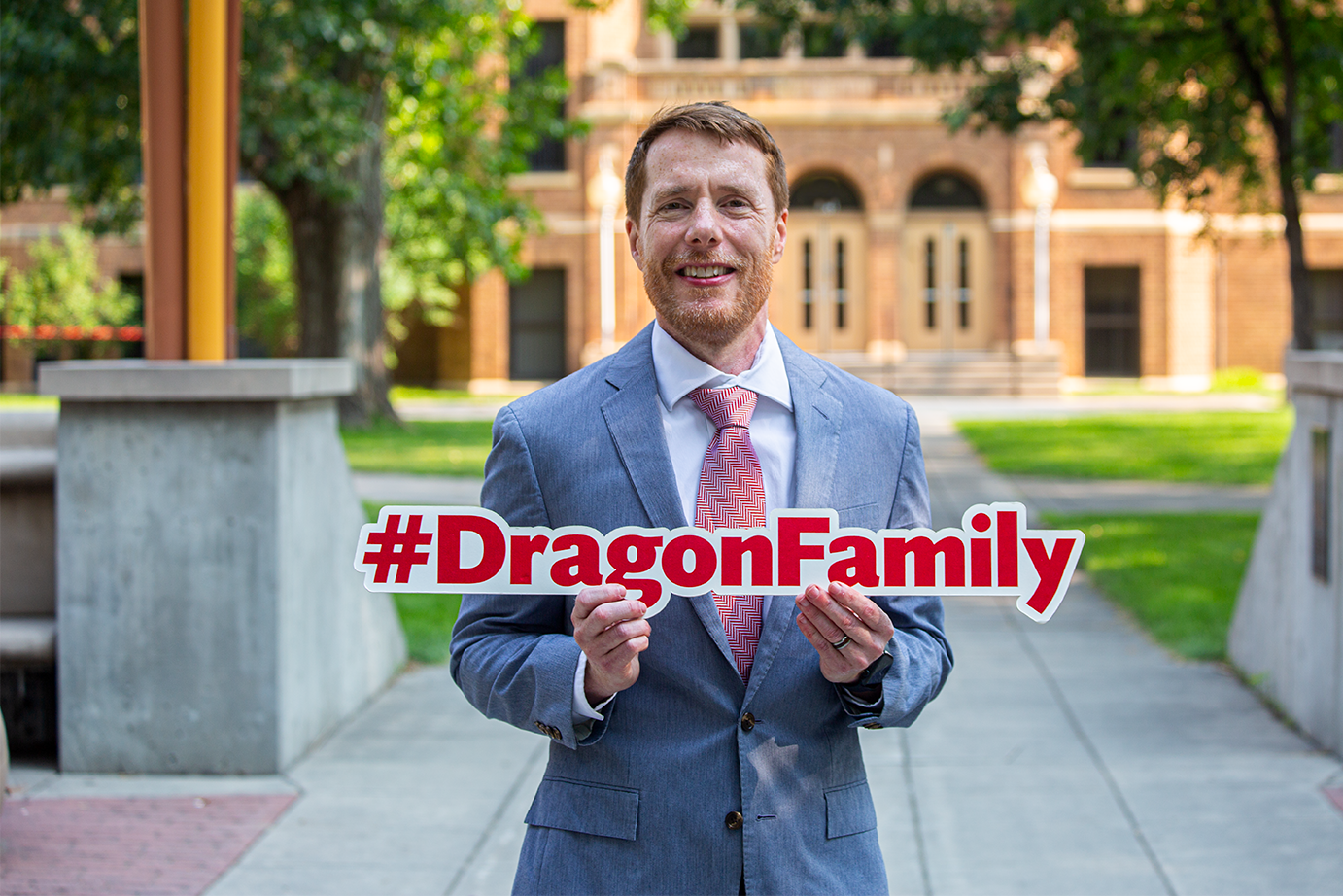A SMART Start to College Life
For Chloe Flynn, going to college was a big life transition.
Not only was she the first person from her family to pursue a college degree, but she also chose to attend Minnesota State University Moorhead – a university nearly four hours away from her home in St. Louis Park, Minnesota.
She knew MSUM was the right choice, but she was still nervous about this next step in her academic career. Then the university invited her to join its SMART Start program.
“I thought it would be a great way for me to integrate into college,” she says.
MSUM’s SMART Start program is for up to 40 admitted students who are often under-represented in higher education, including Black, Indigenous, Asian, Hispanic, LGBTQI2A+, first-generation and Pell Grant eligible students.
The goal is to ease the transition from high school to college by removing social and psychological barriers that may keep students from succeeding in the classroom and getting involved with campus life.
To accomplish this, the free program stresses meaningful connections with peers, student mentors and professors.
“We emphasize the importance of belonging,” says Zinnia Marquette, SMART Start program coordinator. “We want all students to feel welcome in our space, to know they’re meant to be here on campus. They’re not just here to get an education but to be part of our community.”
Students in SMART Start are welcomed to MSUM’s campus a week before other first-year students begin orientation. They participate in various activities designed to introduce them to academic expectations and the Fargo-Moorhead community.
Peer mentors plan social events that encourage network-building. Those events continue throughout the year.
In addition, SMART Start has an educational component that includes a first-year experience course and a first-semester mathematics class. For their math course, students receive additional support by being placed in small groups with other SMART Start students at a similar level. The idea is to demonstrate that collaboration and peer support can help students do better in a class often perceived as challenging.
These connections pay off. In fall 2021, the retention rate among SMART Start students from fall to spring semester was 95 percent. In addition. BIPOC students who participated in SMART Start passed their first math class at twice the rate as BIPOC students who were not in the program.
Flynn appreciated the educational support but found the social connections to be the most valuable part.
“If I hadn’t been in SMART Start, I wouldn’t have friends,” she says. “I wouldn’t be as involved with campus life as much as I am. SMART Start helped me get to know the campus well and see what college life was really like.”
Marquette says that the professors who teach in the program often describe the SMART Start cohort as a family, a group of people who want to be there for each other. She sees this when she walks across campus and rarely sees one SMART Start student without another nearby.
“We know education is a powerful tool that can help people succeed,” she says. “And we know that students do better when they have strong connections to others on campus.”
Flynn is one example. She is majoring in social work and minoring in art therapy. She also mentors incoming SMART Start students, mostly because the program was a powerful influence on her own college experience.
“I think SMART Start is a great program for incoming freshmen,” she says. “It gives them a head start. It’s great for people who are nervous or don’t know what to do.”
Marquette agrees. Students represented in SMART Start have valuable, individual stories, she says. These students add much to their peers’ lives when they feel appreciated and welcome.
“We talk about a life transformed at MSUM all the time. With this program, we have an opportunity to be involved in something that changes lives,” she says.
Make Sure Your Story Is Heard
Let us know how your life has been changed by being a Dragon: tell us your MSU Moorhead story today!
Send Us Your Story


